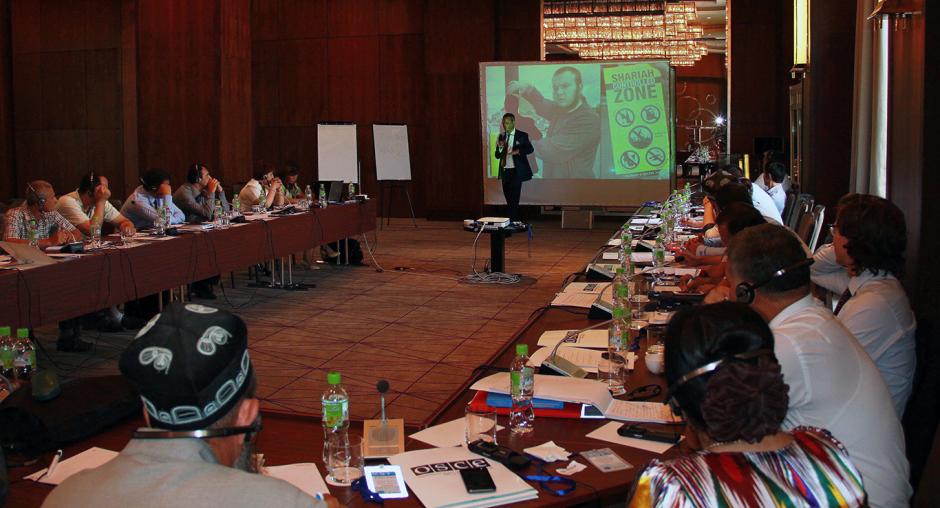OSCE course in Tajikistan highlights role of religious dialogue in preventing violent extremism and radicalization that lead to terrorism

A three-day training course organized by the OSCE Office in Tajikistan on the importance of religious dialogue and the role of religious leaders in efforts to prevent and counter violent extremism and radicalization that lead to terrorism (VERLT), promoting peace and building trust between various parties, commenced on 9 August 2016 in Dushanbe.
The training course brings together key actors and stakeholders of varying orientation and scope of tasks such as law enforcement agencies, religious committees and civil society organisations together.
Terrorists and violent extremists often claim to act in the name of religion, and this is sometimes taken at face value by the media and general public. Two international trainers, with expertise in religious matters and in preventing VERLT, will highlight the positive contribution that education about religion, religious dialogue, and religious leaders can make to prevent violence. The drivers underlying violence committed in the name of religion in Central Asia were also explored.
“The current threat of terrorism can only be defeated by a joint and long-term effort involving national and local authorities, mayors, parents, communities and faith leaders,” said Acting Head of the OSCE Office’s Political and Military Department Wolfgang Nikolaus.
The training course is part of the OSCE Office in Tajikistan’s activities in countering terrorism.
